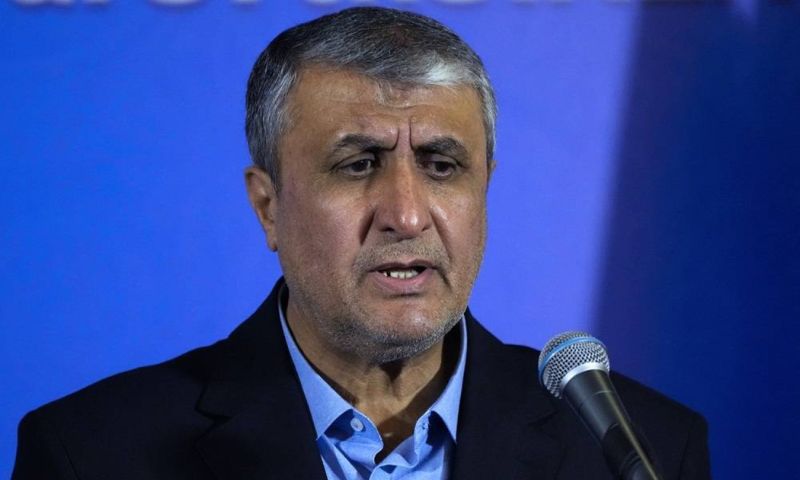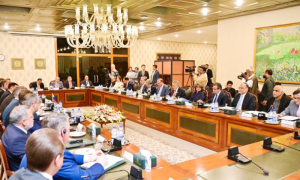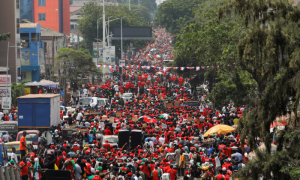TEHRAN: Iran’s newly-elected President Masoud Pezeshkian has reappointed Mohammad Eslami, a US-educated official who was sanctioned by the United Nations 16 years ago, as the head of the country’s nuclear department, state TV reported on Saturday.
Eslami, 67, will continue to lead Iran’s civilian nuclear program and serve as one of the vice presidents. His reappointment comes as Iran remains heavily sanctioned by the West following the collapse of the 2015 nuclear deal, which had lifted sanctions in exchange for curbing Iran’s nuclear activities.
During his presidential campaign, Pezeshkian pledged to work on reviving the nuclear agreement.
The United Nations imposed sanctions on Eslami in 2008, citing his involvement in Iran’s nuclear proliferation activities while he was head of the Defense Industries Training and Research Institute.
Eslami was initially appointed as the chief of Iran’s nuclear department by the late President Ebrahim Raisi in 2021. Prior to this, during President Hassan Rouhani’s moderate administration, Eslami served as the Minister of Transport and Urban Development from 2018. He also has extensive experience in Iran’s military industries, having most recently served as deputy defence minister responsible for research and industry.
Eslami holds civil engineering degrees from the University of Michigan and the University of Toledo.
The US, France, Britain, and Germany have accused Iran of exceeding the limits set by the 2015 deal and of not fully cooperating with the International Atomic Energy Agency (IAEA).
In response, Iran has claimed that the US and its allies are continuing to impose economic sanctions that were supposed to be lifted under the deal and maintains that its nuclear program is peaceful, focused on generating electricity and producing medical radioisotopes, and remains under IAEA oversight.
Iran is currently working on constructing two new nuclear power facilities to complement its existing 1,000-megawatt reactor in Bushehr, which began operation with Russian assistance in 2011.
The country aims to achieve a 20,000-megawatt nuclear capacity as part of its long-term energy plan. In recent months, Iran has experienced widespread power outages.























